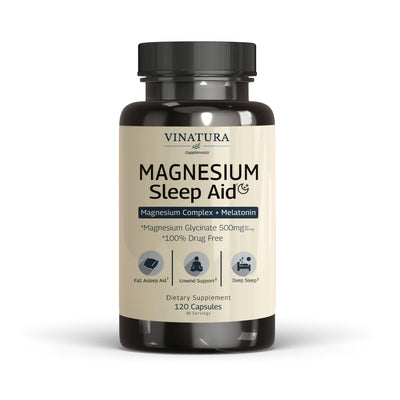
Dihydroberberine Benefits For Weight Loss: Things To Know
When it comes to weight loss or managing weight, Dihydroberberine may no longer be unfamiliar to many. Maintaining a healthy weight is not only a matter of aesthetics but also essential for health protection. Dihydroberberine is an advanced form of Berberine known for its effectiveness in blood sugar regulation. However, to understand if Dihydroberberine can genuinely aid in weight loss, let’s delve into the explanations below!
Before exploring further, please read the disclaimer located at the end of this webpage.
Key Takeaways
- Dihydroberberine is an improved version of Berberine, with better absorption and higher effectiveness in blood sugar control.
- The weight loss benefits of Dihydroberberine are related to its ability to enhance glucose metabolism, stimulate fat oxidation, and regulate appetite.
- Many scientific studies support Dihydroberberine’s effectiveness in promoting weight loss, though further research is needed for conclusive evidence.
Does Dihydroberberine Really Promote Weight Loss?
From a scientific perspective, Dihydroberberine has a certain potential to promote weight loss. Specifically, Dihydroberberine is well-regarded for stabilizing blood sugar levels, helping the body avoid insulin fluctuations that lead to fat storage [1].
Effectively metabolizing glucose helps reduce excess energy [2] – a critical factor in reducing fat accumulation and aiding in weight loss. Additionally, Dihydroberberine has anti-inflammatory and antioxidant properties, which improve overall health and optimize metabolism.
Dihydroberberine Benefits For Weight Loss

Glucose Metabolism
In simple terms, glucose is a primary energy source for the body. However, when glucose levels are too high and not fully utilized, it converts into stored fat.
Dihydroberberine supports the efficient use of glucose, potentially outperforming
Berberine, its precursor. Comparatively, Dihydroberberine has shown higher absorption kinetics than Berberine regardless of dosage, indicating its significant potential in balancing glucose, insulin, and lipid profiles [3].
Fat Oxidation
Dihydroberberine can activate fat oxidation, which means using fat as an energy source instead of storing it. This process helps reduce excess fat, particularly in the abdominal area. Studies have shown that when taking Dihydroberberine, the body tends to utilize more fat for energy, thereby reducing overall lipid levels.
In a clinical trial involving over 80 mice on a high-fat diet, 10 of them received either Berberine or Hdber (Dihydroberberine). Results indicated that “the high-fat diet decreased the expression levels of some proteins in murine liver tissues. However, the addition of Berberine or Hdber reversed the blood lipid profile changes…” [4], demonstrating Dihydroberberine’s weight loss potential.
Appetite Regulation
Another benefit of Dihydroberberine is its ability to help regulate appetite through blood sugar control. Stabilizing blood sugar reduces uncontrolled cravings, especially for sweets.
With unstable insulin levels, glucose is often inefficiently metabolized, creating deceptive signals that the body needs more sugar, as evidenced by studies on glucose and insulin [5]. This is crucial for sustainable weight loss, allowing users to control portion sizes without feeling overly hungry.
What Does Science Says About The Benefits Of Dihydroberberine For Weight Loss?

Several studies indicate that Dihydroberberine outperforms Berberine in absorption and rapid blood sugar stabilization. In a previously mentioned study comparing Berberine and Dihydroberberine, it was noted, “Berberine is a natural alkaloid used to improve blood sugar but has low bioavailability and causes gastrointestinal disorders at higher doses. Recently, Dihydroberberine has been developed to overcome these challenges” [6].
Clinical trials show that groups using Dihydroberberine experienced more effective weight loss and significant blood sugar improvements compared to those using traditional Berberine. However, broader studies are needed to confirm these results and establish Dihydroberberine’s superiority in weight loss [7].
Dihydroberberine Dosage For Weight Loss
In studies referenced above, typical doses for both animals and humans range from 100-500 mg per dose per day, with some cases involving three doses per day.
Different health goals may require varied dosages. To ensure an effective dosage for weight loss, consider consulting specialists in this field for personalized advice.
Precautions When Using Dihydroberberine For Weight Loss
While Dihydroberberine is generally safe and causes fewer side effects than Berberine, some individuals may experience mild symptoms like nausea or digestive issues. Trials on Berberine, the precursor to Dihydroberberine, have shown no biological changes in kidneys or liver, even with topical applications. [8]
Thus, Dihydroberberine is generally safe, though usage should be closely monitored. Pregnant or breastfeeding women and individuals with pre-existing health conditions should consult a doctor before using this supplement.
Comparing Dihydroberberine With Other Weight Loss Supplements
Dihydroberberine is highly regarded for its blood sugar control and fat metabolism benefits, setting it apart from traditional weight loss supplements that only suppress appetite or boost metabolism. Unlike conventional products, Dihydroberberine optimizes energy metabolism, reducing the risk of long-term weight gain.
Conclusion
In summary, Dihydroberberine is a promising supplement for those seeking a safe and effective weight loss method. Not only does it control blood sugar levels, but Dihydroberberine also reduces appetite and enhances fat oxidation. However, users should adhere to appropriate dosages and combine usage with a balanced diet and exercise for the best results.
References
- [1] [3] [6] Moon, Jessica M., et al. “Absorption Kinetics of Berberine and Dihydroberberine and Their Impact on Glycemia: A Randomized, Controlled, Crossover Pilot Trial.” Nutrients, vol. 14, no. 1, Dec. 2021, p. 124. https://doi.org/10.3390/nu14010124.
- [2] Poggiogalle, Eleonora, et al. “Circadian Regulation of Glucose, Lipid, and Energy Metabolism in Humans.” Metabolism, vol. 84, Dec. 2017, pp. 11–27. https://doi.org/10.1016/j.metabol.2017.11.017.
- [4] Liu, Dl., Xu, Lj., Dong, H. et al. Inhibition of proprotein convertase subtilisin/kexin type 9: A novel mechanism of berberine and 8-hydroxy dihydroberberine against hyperlipidemia. Chin. J. Integr. Med. 21, 132–138 (2015). https://doi.org/10.1007/s11655-014-1775-1
- [5] Schlundt, David G., et al. “A Sequential Behavioral Analysis of Cravings Sweets in Obese Women.” Addictive Behaviors, vol. 18, no. 1, Jan. 1993, pp. 67–80. https://doi.org/10.1016/0306-4603(93)90010-7.
- [7] Turner, Nigel, et al. “Berberine and Its More Biologically Available Derivative, Dihydroberberine, Inhibit Mitochondrial Respiratory Complex I.” Diabetes, vol. 57, no. 5, Feb. 2008, pp. 1414–18. https://doi.org/10.2337/db07-1552.
- [8] Buchanan, Beth, et al. “Comparative Pharmacokinetics and Safety Assessment of Transdermal Berberine and Dihydroberberine.” PLoS ONE, vol. 13, no. 3, Mar. 2018, p. e0194979. https://doi.org/10.1371/journal.pone.0194979.
Author

Product Disclaimer
The dietary supplement products mentioned on this website are formulated based on scientific research and adhere to FDA guidelines for dietary supplements. However, the content of the articles has not been evaluated by the Food and Drug Administration (FDA) and is not intended to promote or endorse any specific product. Any products sold on this website are not intended to diagnose, treat, cure, or prevent any disease.
Opinions and Endorsements
Any claims, statements, or opinions expressed in the articles are those of the author(s) and do not necessarily reflect the views or opinions of the manufacturers of the dietary supplement products. The products sold on this website are separate from the content of the articles and are not directly endorsed or associated with the information presented here.
Liability Disclaimer
The author(s) of the articles, website, and manufacturers of the dietary supplement products do not assume any liability for any potential consequences arising from the use of the information provided in the articles. It is recommended that individuals consult with a qualified healthcare professional before making any dietary or lifestyle changes, including the use of dietary supplements.
Product Usage
Please refer to the product labels and packaging for specific usage instructions and guidelines for the dietary supplement products sold on this website.
Customer Support
For any concerns or questions regarding the dietary supplement products, please contact our customer support team, who will be more than happy to assist you.





Leave a Comment
Be the first to comment.
What do you think?